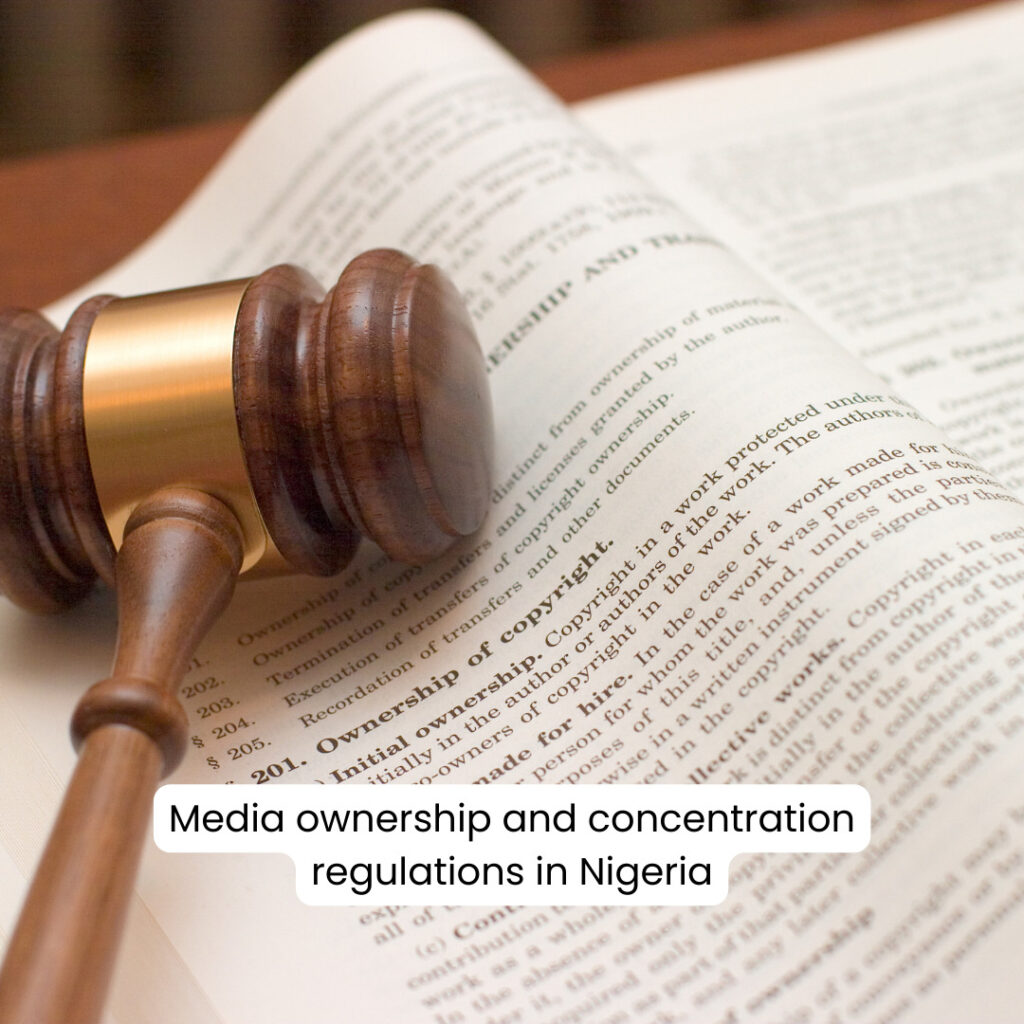Media Ownership and Concentration Regulations in Nigeria
The media plays a pivotal role in shaping public opinion, promoting democratic discourse, and holding those in power accountable. However, the concentration of media ownership can potentially undermine these fundamental principles by limiting diverse viewpoints and stifling competition. In Nigeria, as in many countries, the issue of media ownership and concentration has gained prominence, leading to efforts to establish regulations that ensure a vibrant and pluralistic media landscape. In this article, we delve into the complex dynamics of media ownership and concentration regulations in Nigeria, examining their significance, challenges, and implications for democracy and the free press.
Media Ownership Landscape
Media ownership refers to the control and ownership of media outlets, including newspapers, television stations, radio stations, and digital platforms. In Nigeria, a diverse range of media entities operate, spanning print, broadcast, and digital media. However, concerns about media ownership concentration have been raised, particularly in relation to the potential for limited viewpoints and undue influence over public discourse.
Significance of Regulations
Regulations that address media ownership and concentration are essential to safeguard the pluralism, independence, and diversity of voices within the media landscape:
- Preserving Democracy: A pluralistic media environment ensures that citizens have access to a variety of viewpoints and information sources, fostering a well-informed electorate and a robust democratic society.
- Promoting Competition: Regulations that prevent excessive concentration of media ownership encourage healthy competition among media outlets, preventing monopolies that could stifle innovation and limit consumer choice.
- Protecting Independence: Ensuring a balance of ownership can help prevent undue influence from a single entity or group, safeguarding the independence and editorial integrity of media organizations.
Media Ownership Regulations in Nigeria
Nigeria has taken steps to address media ownership concentration through legal and regulatory measures:
- National Broadcasting Commission (NBC) Code: The NBC has introduced provisions in its code that aim to prevent monopolistic control of media by a single individual or entity. These provisions are designed to promote diverse ownership and competition in the broadcast sector.
- Competition and Consumer Protection Commission (CCPC): The CCPC is responsible for enforcing competition and consumer protection laws, which can have implications for media ownership concentration.

Challenges and Considerations
While media ownership regulations have positive intentions, several challenges and considerations arise:
- Balance with Freedom of Expression: Striking a balance between promoting diversity and preventing concentration while upholding the right to freedom of expression is essential.
- Enforcement and Monitoring: Effective enforcement of ownership regulations requires robust mechanisms to monitor ownership changes and prevent entities from evading the rules.
- Digital Landscape: The digital age has brought new challenges, as online platforms and social media can have significant influence even without traditional forms of media ownership.
- Media Sustainability: Striking a balance between ownership regulations and ensuring the financial sustainability of media outlets can be complex, particularly for smaller players.
Future Directions
As Nigeria’s media landscape continues to evolve, addressing media ownership concentration will remain a dynamic endeavor:
- Transparency: Transparency in media ownership is essential to enable citizens to understand who controls the information they consume.
- Stakeholder Engagement: Engaging stakeholders, including media organizations, civil society, and the public, in discussions about media ownership regulations can help ensure a balanced and informed approach.
- Digital Platforms: As digital platforms play an increasingly prominent role, regulations may need to evolve to address online media ownership concentration.
Conclusion
Media ownership and concentration regulations in Nigeria are integral to promoting a diverse, competitive, and independent media ecosystem. Striking the right balance between preventing undue concentration and respecting freedom of expression requires thoughtful consideration and ongoing dialogue among stakeholders. By fostering an environment that encourages pluralism, transparency, and fair competition, Nigeria can nurture a media landscape that enriches public discourse, empowers citizens, and upholds the principles of democracy and the free press.
